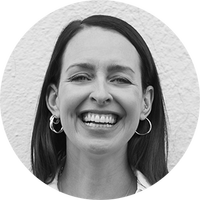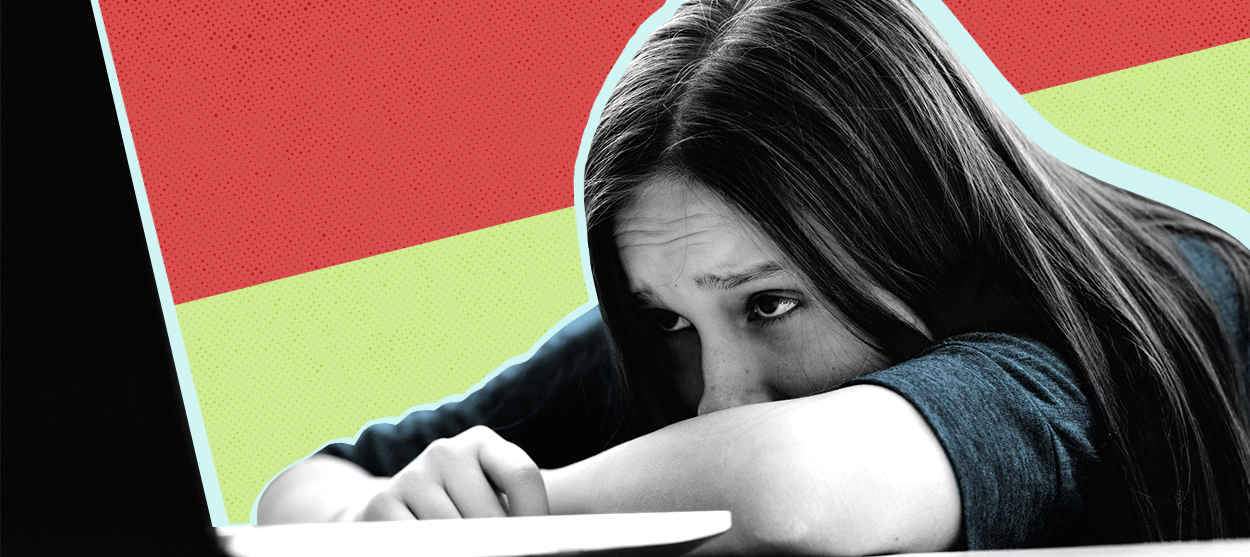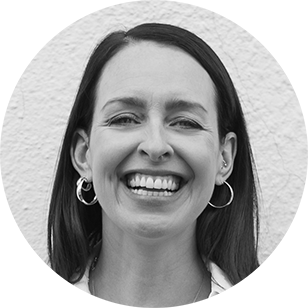Why 'It gets easier' is a parenting myth
Oh, the lies we tell ourselves in order to survive


A free daily email with the biggest news stories of the day – and the best features from TheWeek.com
You are now subscribed
Your newsletter sign-up was successful
"Hang in there — it will get easier."
The well-meaning words of a fellow parent. Someone whose kids were older and more obedient than mine — on that particular day, a fractious 3-year-old wrapped around my leg as I tried to wrestle his 10-month-old sister into her stroller.
I'm not usually one to take unsolicited parenting advice, but this I clung to.
The Week
Escape your echo chamber. Get the facts behind the news, plus analysis from multiple perspectives.

Sign up for The Week's Free Newsletters
From our morning news briefing to a weekly Good News Newsletter, get the best of The Week delivered directly to your inbox.
From our morning news briefing to a weekly Good News Newsletter, get the best of The Week delivered directly to your inbox.
Nine years later and I'm still waiting for it to get easier. Okay, so my son doesn't form a vice around my calf in the supermarket parking lot anymore, but life with a kid on the cusp of teenagedom is just as challenging as the pre-school days. And while my almost-double-figures daughter is a lot more helpful during shopping trips, she's as challenging as she was before she could walk and talk, just in completely different ways.
After a lengthy gap, I've gone back to the beginning. This time next year, I'll have a toddler and a teenager. We're already taking bets on who'll be the most erratic. I reckon the odds are pretty even.
In some ways, that well-meaning bystander in the supermarket parking lot all those years ago was right. It does get easier, insofar as kids become more independent. They learn how to feed themselves, use the bathroom, get to grips with zippers and buttons and laces. They need you less for all the practical aspects of parenting that take up so much precious time during hectic mornings. When they start school, you even get a few hours' respite from being at their beck and call.
Being in the position of comparing a very young child with two significantly older ones has confirmed to me that, as exhausted as I am from breastfeeding on demand and changing endless dirty diapers and simply being "on duty" around the clock, kids are easier when they're younger.
A free daily email with the biggest news stories of the day – and the best features from TheWeek.com
Founder of Your Village Erin Royer-Asrilant, who has a master's degree in psychology and a specialty in child development and family relationships, agrees that while the most physically taxing years were when she had three toddlers, she now faces other, more emotionally difficult parenting challenges.
"As my children have become more aware and spend more time out in the world, they have come up against things that I, even as a parenting expert, have to do some problem-solving to figure out," she says. "There have been numerous occasions when my kids have had issues with something a teacher did or said. One time, my son was so distraught because he wasn't voted to be on student council that he couldn't stop crying when he got into the car after school that day."
An unavoidable part of growing up is dealing with, well, grown-up stuff. My 90-year-old grandfather is currently seeing out the end of his life in hospital, and my two older kids have lots of questions that I don't know the answers to. Mainly, they want to know what will happen to him when he dies. Years ago, when they asked me the same thing about our kitten after she had to be put to sleep, they accepted a vague response and were comforted with cuddles. These days, I can't get away with bluffing.
"Dealing with disappointment, death, and being treated with disrespect are all things even many adults struggle to handle for themselves," Royer-Asrilant says. "But as an involved parent, we can't shy away. We find ourselves having to face our own insecurities and weaknesses in order to be better for our children."
Whatever our kids are going through, our primary objective as parents is keeping them safe. It's central to our experience, whether they're toddlers or teenagers. From the moment they come into our lives, we have to keep them safe: a rear-facing car seat, no loose blankets in the crib, the right temperature, the right sleeping position. We help them cross the road until the day they refuse to take our hands because they're too embarrassed to be seen showing affection toward their parent. And even then, when they're older, it's all about their safety: finding positive peer groups, navigating social media and technology, making the right decisions about sex, alcohol, and drugs, and coping with romantic rejection and heartbreak.
"When it comes to the struggles of toddlers versus teens, I don't think it necessarily gets easier," Royer-Asrilant says. "It's just different."
Kids also need more structure, guidance, and social, emotional, and academic support as they get older, says licensed marriage and family therapist Wendy O'Connor. "They need more role modeling (from teachers and friends as well as parents) to create a solid moral compass," she says. "This can only happen if we actively challenge the myth that kids get easier as they get older."
According to O'Connor, that myth is true only if we parent in a passive way. The problem is passive parenting often doesn't meet our kids' needs. "The goal is to actively parent and participate in helping kids grow into happy, healthy, loving, caring beings," she says.
While we can't prepare ourselves for every eventuality — it's impossible to know what obstacles our kids will come up against — Royer-Asrilant believes we can do a lot to make the more emotionally challenging years a little easier.
"A parent who sets a strong foundation, starting in toddlerhood and continuing through adolescence, will weather all stages of their child's development process and find it easier to guide them through their unique challenges," she says. By focusing on strong bonding, communication, and mutual respect through positive discipline, as well as being proactive early in parenting struggles and not always focusing on putting out fires, the teenage years might not hit so hard.
Want more essential commentary and analysis like this delivered straight to your inbox? Sign up for The Week's "Today's best articles" newsletter here.
Claire Gillespie is a freelance writer with bylines on Health, SELF, Refinery29, Glamour, The Washington Post, and many more. She likes to write about parenting, health, and culture. She lives in Scotland with her husband and six kids, where she uses every (rare) spare moment to work on her novel.
-
 What to know before filing your own taxes for the first time
What to know before filing your own taxes for the first timethe explainer Tackle this financial milestone with confidence
-
 The biggest box office flops of the 21st century
The biggest box office flops of the 21st centuryin depth Unnecessary remakes and turgid, expensive CGI-fests highlight this list of these most notorious box-office losers
-
 What are the best investments for beginners?
What are the best investments for beginners?The Explainer Stocks and ETFs and bonds, oh my
